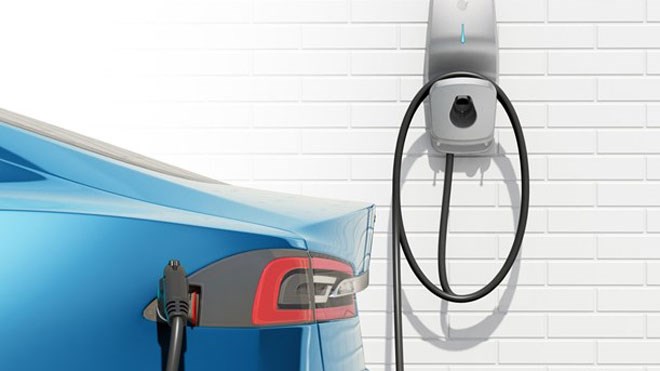Magnetawan council is on board with an electric vehicle (EV) charging station as proposed by Bracebridge-based Lakeland Holdings.
Council fully supports having either a Level 2 or 3 EV charging station installed in the village, assuming Lakeland is successful in its National Resources Canada (NRCan) application to cover part of the project costs.
NRCan will cover up to half the costs for companies, like Lakeland Holdings, to place EV chargers in communities.
Lakeland has been gauging interest in the Almaguin region for the electric stations.
In total, Lakeland wants to install 20 Level 2 chargers across Muskoka and Parry Sound districts, in addition to two Level 3 chargers.
Debating in favour of Lakeland's proposal, Magnetawan Deputy Mayor Tim Brunton identified potential problems the village might run into, assuming it receives one of the charging stations.
The debate centred on putting a station in the parking lot of the municipal community centre.
Brunton said he was a little cynical but asked if local residents with electric cars could plug their vehicles into the station and then leave, rather than plug the vehicles in at their own homes using their own electricity.
He said that would make the charging station unusable for others and asked how the village would handle this type of situation.
“I can see there is nothing more frustrating if it's a Level 3 charging station, which can charge vehicles in 40 minutes to an hour, and people are lined up to use it but can't because someone's gone home.”
Brunton said in the case of a Level 2 charger, which takes several hours to charge a vehicle, the village may run into instances where an individual leaves the vehicle plugged in overnight.
“Tim's absolutely right,” Mayor Sam Dunnett said.
“They come and park it here, go home and leave it overnight. Then they pick it up the next morning and away they go and it hasn't been available for others.”
However, Dunnett proposed a possible solution that might nip this practice in the bud.
He said the solution may be to ensure charging at the station is no cheaper than charging at home.
The mayor said the rate structure is something that would need to be discussed with Lakeland.
But Brunton pointed out another problem the village might run into.
“There are people who like to ice,” Brunton said. “This means you have an internal combustion engine but you're parked at an electric vehicle charging station and are not plugged in.”
Brunton said he didn't know why someone with a vehicle that doesn't need electric charging would block access to a charger, adding it must be “their idea of fun.”
He said this practice, along with people charging their vehicles at the municipal parking lot instead of at home, may require enforcement.
Brunton said electric cars are the future, telling his council colleagues that he happened to be in downtown Huntsville recently and saw four Teslas in a very short period of time.
He said other types of electric vehicles were harder to spot but added “we know there are people in the area that use them.”
Brunton also noted that having a charging station in the village may serve as an incentive to get people off Highway 124 and into the community.
Lakeland has until June 22 to submit its application to NRCan, which will announce the successful applicants in early fall.
If successful, work to install the charging stations would begin next spring.
Level 3 chargers require additional power and more expensive infrastructure.
One Level 3 charging station can cost between $50,000 and $80,000, with installation an additional $30,000.
Level 2 chargers don't require as much power and their infrastructure goes for several thousand dollars apiece, plus a further $10,000 to $15,000 to install them.
Burk's Falls and Sundridge are two other communities Lakeland has approached with the charging station proposal. Both are interested in and have supported, the initiative with resolutions from their respective town councils.
- Rocco Frangione is a Local Journalism Initiative reporter who works out of the North Bay Nugget. The Local Journalism Initiative is funded by the Government of Canada.



